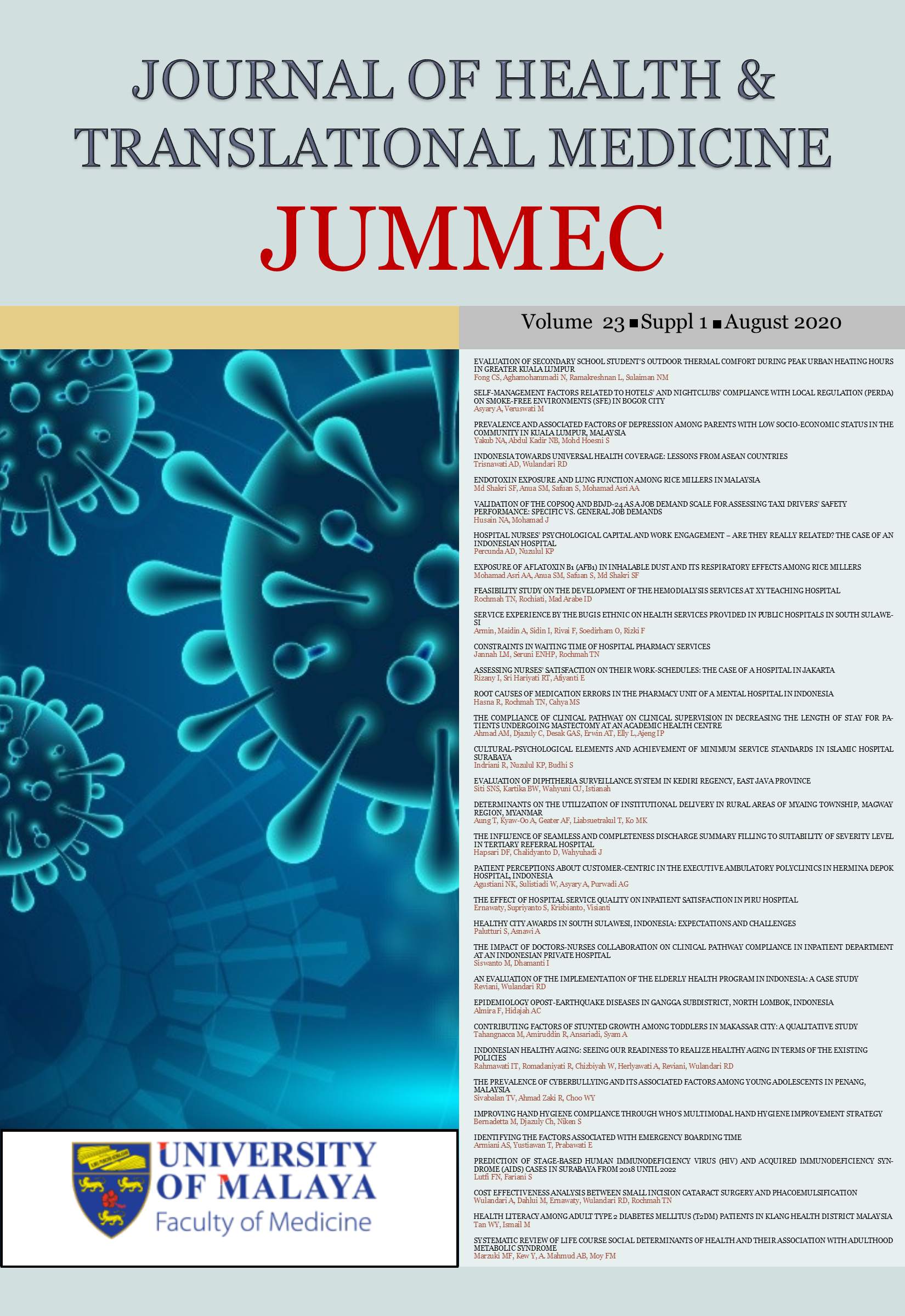INDONESIA TOWARDS UNIVERSAL HEALTH COVERAGE: LESSONS FROM ASEAN COUNTRIES
Keywords:
Health insurance, Indonesia health systems, Literature review, Universal health coverageAbstract
Background: WHO has recommended that all countries apply the concept of Universal Health Coverage (UHC) in their commitment to ensure the health of their people. Although most ASEAN countries have implemented UHC, only 30% of them are considered successful. UHC considers three pillars for its implementation; all groups of people should be covered, at least the basic healthcare services are delivered, and that people could afford to access healthcare when in need. National health insurance had been set up by many countries as the approach to ensure that all citizens could obtain healthcare. However, in Indonesia, after several years of implementation, 33% of the population has yet to register while the 100% target was overdue in 2019.
Objective: To describe the progress towards UHC in Indonesia and determine the strategies used by other countries in ASEAN in achieving UHC.
Methods: Articles on UHC in ASEAN countries between the years 2014-2019 were searched according to PRISMA and reviewed. The articles were compiled using a series keyword in ResearchGate, ScientDirect, ProQuest, SAGE, and EmeraldInsight database. The studies included qualitative studies and written in English.
Results: There are various healthcare financial mechanisms that a country can implement. In 2014, Indonesia had developed a national health insurance known as JKM as its mechanism of financing healthcare towards achieving UHC. However, till date only 54% of her population had registered for JKM. There is no automatic registration via the national identity card and registration for NHIS is only done when there is a need to use the healthcare services.
Conclusion: The review demonstrates that policy implementation still needs to be monitored and evaluated. Recommendations are made for the medical professional association and the government.
Downloads
Downloads
Published
Issue
Section
License
All authors agree that the article, if editorially accepted for publication, shall be licensed under the Creative Commons Attribution License 4.0 to allow others to freely access, copy and use research provided the author is correctly attributed, unless otherwise stated. All articles are available online without charge or other barriers to access. However, anyone wishing to reproduce large quantities of an article (250+) should inform the publisher. Any opinion expressed in the articles are those of the authors and do not reflect that of the University of Malaya, 50603 Kuala Lumpur, Malaysia.


